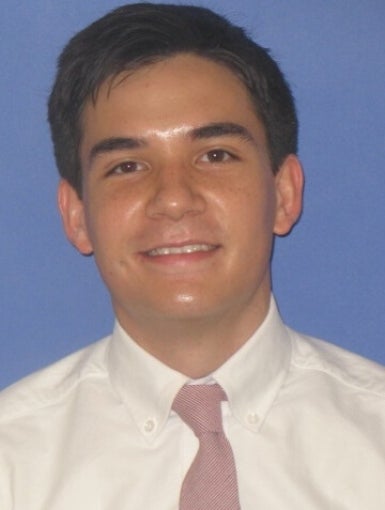
The school’s location and unique offering of both domestic and international policy influenced alumnus Sean Lowry’s decision to attend the University of Maryland School of Public Policy. And because of the experiences and relationships he formed at the School, Lowry discovered that he enjoyed the research aspect of policy, which he focuses on in his job as an analyst in public finance for the Congressional Research Service (CRS).
“I interned at a different organization (mostly federal government agencies) almost every semester,” Lowry says. “Through my internships, I got an idea of the culture of each organization, and the average day’s work. While each of my internships was valuable in their own way, I learned that I like the research side—where I can really dig into an issue.”
Lowry, who specialized in international security and economic policy at SPP, says his interest in US-China policy influenced his decision to study public policy at the graduate level. “Being half Chinese, I always felt a duty to better understand the historical, cultural, economic and political contexts that define the US-China relationship, and the greater regional issues that also have an effect on the bilateral relationship,” Lowry says.
“I applied to several international affairs master’s degree programs across the country,” Lowry says. “I picked SPP for three main reasons: affordability, a broad basis and integration of foreign policy and domestic policy, and proximity to Washington, D.C. and all of the opportunities for internships and networking.”
I think my degree has helped me to appreciate and to never underestimate the complexity of public policy issuesSean Lowry SPP Alumnus
Lowry adds that his coursework completed at UMD School of Public Policy helped him start his career after graduation. “Much to my surprise, the most important project that I ended up working on was a short research paper for my finance class,” he says. “For my final paper, I chose to analyze the corporate tax policy. It turned out, I used that paper as my writing sample when I applied to CRS. Two years later, I look back on that short paper, and the format resembles a lot of the ways I approach issues when I write a CRS report now.”
In addition to the useful assignments and projects, Lowry says he enjoyed the interaction with professors. “I enjoyed being challenged at SPP; professors encouraged or even provoked classroom discussion among classmates,” Lowry says. “Professors also constantly pushed us to write better, and to think harder about the readings.”
Based on his personal experience as a graduate student at the UMD School of Public Policy, Lowry advises current and prospective students to embrace the opportunities given to them. “Make the most of every day, constantly challenge yourself and don’t be afraid to make mistakes,” Lowry says. “Try out classes and internships in grad school. Even if you find you don’t like something, you end up saving yourself the time and effort of chasing something in vain after you earn that degree.”
“I think my degree has helped me to appreciate and to never underestimate the complexity of public policy issues,” Lowry adds. “It’s up to the public servants of the future to make sure that this attention to detail is not taken for granted, because the actions or inactions of policymakers can have major effects on the lives of everyday people.”

